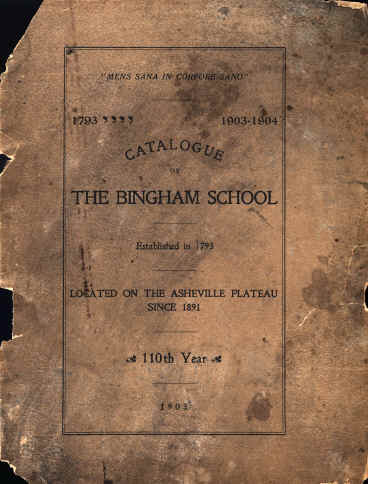|
Page no. |
Image no. |
Description |
Thumbnail |
| Cover, front |
bs_cover_r |
[Cover]
Catalogue of the Bingham School Established 1793. Located on the
Asheville Plateau since 1891. |
 |
Frontis
_piece |
|
[Frontispiece] Catalogue of the
Bingham School
To insure prompt delivery, all mail
matter, all telegrams for Cadets, and all express matter for the School,
should be directed to the BINGHAM SCHOOL, Post Office, ASHEVILLE, N. C.
The weight of Express packages should always be marked distinctly, they
should be securly-wired and sealed, and tbey should always be PREPAID in
full.
FACULTY.
Colonel ROBERT BINGHAM, A. M.. LL. D.,
superintend (The Bingham School, University o£ North Carolina.)
Major R. T. GRINNAN, Vice-Superintendent.
(University of Virginia.)
M. C. MILLENDER, M. D., (The Bingham
School, University of North Carolina, University of New York Postgraduate
School,) Surgeon.
Captain WILLIAM F. BRYAN, Ph. D.
(University of North Carolina.)
Captain ROBERT R. WILLIAMS, A. B. Catawba
College, University of North Carolina.)
Captain WILFRED L. BROOKER, A. M. (South
Carolina College.)
Captain JAMES R. CROUCH, B. S. (South
Carolina Military Academy.)
Captain WM. PJNCKNEY HERBERT, A. B., B,
S. (South Carolina'College.)
CALENDAR FOR 1903-1904.
The Term of 1903-1904, being the Hundred
and Eleventh year, begins September 3,1903, and continues till May
36,1901. The Term is divided into " Half Terms " or "Sessions." the
Two-Hundred and Twenty-First (the Tall Session) beginning September 3, and
ending December 33, 1903, and the Two-Hundred and Twenty-Second (the
Spring Session) beginning January 1st, 1901, and ending May 36, 1904.
M. B.-The Scholastic year begins with
each Fall Half-Term.
|
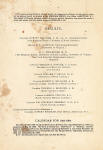 |
| page 1 |
bs001 |
For Calendar,
see second page of Cover. For Table
of Contents, see third page of Cover.
1. The Bingham School was founded in 1793
by Rev. Wm. Bingham (grandfather of its present headmaster and owner), and
was conducted by him till 1825. His son, W. J. Bingham, succeeded him and
conducted it from 1825 till 1865, when he was succeeded by his sons
William and Robert, who conducted it in partnership from 1865 till 1873,
since which time Robert Bingham has owned and conducted it. The school was
in middle North Carolina till 1891, when it sought a better climate and
erected safer and more sanitary buildings on the ASHEVILLE PLATEAU, in
Western North Carolina.
It is the oldest school for boys in the
Southern States and is older than any other Southern Institution of
learning of any grade south of Virginia.
United States which has been administered
continuously from grandfather to grandson so as to teach THREE CENTURIES,
having been founded in the eighteenth, having been in continuous operation
during the nineteenth, and having touched the twentieth century with the
opening of the Spring session of 1901; and during all these years there
has been no break in the continuity of it superintendence, methods,
discipline, and instruction.
2. The Location.—Since 1891 the School
has been located on the Asheville Plateau, three miles northwest of the
City of Asheville. Our present location was selected from about fifty (50)
sites offered to us in an area including almost every Southern State and
one State in the Central West and in one case at least with a 30,000 cash
inducement; and the longer we stay here, the more certain we are that out
selection was wise.
From the salubrity of its climate this
Plateau, which averages 2,500 feet above the sea-level, is the most
frequented all-the-year-round-Pleasure-and-Health-Resort in America,
having attracted by its winter climate sixty thousand (60,000) visitors
from the North in a single Winter (whereas other mountain regions, the
Adirondacks, the Catskills, the Virginia mountains, for instance, repel
visitors entirely in the Winter), and forty thousand (40,000) visitors
from the South in a single summer by its summer climate; and it has been
chosen |
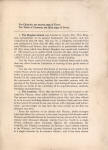 |
| page 2 |
bs002 |
as a place of
permanent residence by a number of multi-millionaires
For the same reason this famous Plateau is
becoming a great EDUCATIONAL CENTRE, six institutions of learning of high
character, three from the South and three from the North, having located
on it within the last ten years; and its prospects of becoming one of the
greatest educational centres in the country are enhanced by the fact that
this Plateau, which is so famous climatically, is the actual geographical
centre of a circle touching Lake Erie on the North, the Atlantic on the
East, the Gulf of Mexico on the South, and the Mississippi on the West,
thus including or touching nearly half the States in the Union, and it is
within three hundred and fifty (350) miles of the centre of population in
the United States.
This effective geographical position is
made much more effective educationally by the fact that MALARIA, which so
cripples the physical and the mental development of the young in schools
in so many localities, is absolutely UNKNOWN here; and that PNEUMONIA,
which has proved so dangerous to the pupils of schools in some localities,
is an almost UNKNOWN DISEASE on this most highly favored Plateau.
3. The Site.—The Site of the School is
three miles from Asheville, on a bluff 250 feet above the French Broad
River and beyond it; so that the advantages of both Country and City are
secured.
The purest water is supplied by a
hydraulic dam from bold springs at the foot of the hill and 75 feet above
the level of the river.
The School grounds contain nearly sixty
(60) acres, affording ample space for military and athletic exercises, for
the kitchen garden supplying the table with fresh vegetables, and for
pasturage for the cows supplying fresh milk.
4. (i) The Buildings.—The Buildings,
which are the result of the study of School Buildings for thirty years, in
some twenty-five States of the Union and abroad, with a view to
ventilation, sanitation, discipline, instruction, and safety against fire,
are an entirely new departure from the typical three- or four-story school
buildings, erected in many cases by some town or corporation for show
rather than for utility, arranged as if to supply the pupils with vitiated
rather than with pure air, and to propagate rather than to destroy the
germs of disease, and often occupied by teachers who had no share in
planning them. In planning The Bingham School buildings to accommodate 128
pupils, two (2) in a room and one (1) in a bed, Cost and mere show were
entirely subordinated to HEALTH and SAFETY. As a matter |
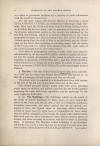 |
| page 3 |
bs003 |
of fact much
more showy buildings on the usual plan could have been erected at
two-thirds of the cost. 4- As a
provision for HEALTH the Buildings are on the so-called " cottage plan,"
which has been adopted of late years on sanitary grounds by all civilized
governments for Barracks and Hospitals, although it is much more expensive
than a high and showy building would have been. The dormitories and
classrooms are all of brick, in eight sections, and placed on both sides
of a street 75 feet wide. (See ground plan, drawn to scale 60 feet to the
inch.) They are but one story high and one story deep, so that each pupil
gets air and light in his quarters from two opposite directions. The
Class-rooms are kept free from vitiated air by having no communication
with the dormitories or with each other. They get fresh air automatically
by a system so simple and so efficient as to be most highly approved by
everyone who inspected it, as hundreds have done.
If food, to be taken into the stomach
three times a day, should be carefully guarded against impurities, how
much more should the air, taken into the lungs 25,000 times a day, he kept
pure?
DAMPNESS is prevented by a course of
slate and cement on every wall about one foot above ground. Instead of a
less expensive but less healthful system of steam-heating, each room has
an open fireplace and the comfort and ventilation which nothing affords so
well as an open fireplace. Each dormitory has two single beds, with spring
mattresses; and one rarely finds a room anywhere better heated, lighted
and ventilated and more wholesome and comfortable in all respects.
• 4. (3) Safety Against Fire.—Having had
three experiences with fire in the one- and two-story wooden buildings
occupied by the School in middle North Carolina and abandoned in 1891, our
present buildings, as has already been stated, are of brick, in eight
sections, with nothing that can burn but the floor, ceiling and sheeting,
and are only ONE STORY HIGH, so that each pupil can step from his door, or
get from his window if need be, to the ground. The sections are separated
by parapet fire-walls, so that a fire could hardly pass from section to
section. EACH PAIR of ROOMS is separated by a brick partition wall, so
that it would take some time for a fire to pass from room to room. Water
can be thrown over the top of every building from fire-by fire almost
impossible. And the wisdom of a parent's securing this
|
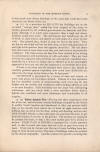 |
| page 4 |
|
fire protection
for his son while at school is remarkably vindicated by the fact that
since our buildings were put under contract in 1891, more than THREE
HUNDRED pupils ARE KNOWN to have been burnt to death in school fires in
the United States, or to have been injured by jumping from up stairs
windows, and many more cases of death or injury have not been reported at
all, or have not been recorded.
**"The most practical test of the HEALTHFULNESS of the climate, of the
buildings, of the food furnished, of the water used and-of the air
breathed is that the average gain of our pupils in WEIGHT in a single
School year has been as much as NINETEEN pounds, and that every one,
without a single exception, who has inspected the School (as hundreds from
all parts of the country have done) is pronounced in the opinion that for
health, for safety against fire, for convenience, for comfort, for
discipline, and for instruction, our location and buildings are
unsurpassed in the United States, and many say freely that they are
unequaled."®*
5. Means of Access.—The Asheville Plateau
is accessible in all directions, and has the advantage of round trip rates
from all leading points in the South during the Summer, and from many
leading points in the North during the Winter.
The School may be reached from the
hotels, or directly from the Station in carriages which enter the School
grounds; or it may be reached for one five cent fare by the street cars,
which leave the Station every fifteen minutes, and stop at the foot of our
hill, whence a ten minutes' walk up the hill takes one to the buildings.
Baggage is delivered by the Transfer
Company, whose agent meets every train.
**Those arriving on night trains must
needs spend the night in the City.
** There are no accommodations for
visitors on the school grounds, the nearest hotel or boarding-house being
in the City.
6. (i) Religious Character.—The opinion
which obtains in some quarters that military schools are defective In the
matter of moral training is due to the fact that most military schools are
State schools, and that the State school, like the public school, though
not necessarily irreligious, as some claim, is non-religious in theory;
and therefore in practice it does not, as a rule, make religious
instruction a part of its routine.
But the Bingham School, though
undenominational, has always stood for Christian education, has always
made religious instruction a part of its routine, and has always pressed
on its pupils that the |
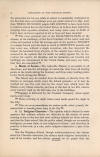 |
| page 5 |
|
Christian
gentleman is the highest type of manhood. The Superintendent is a member
of the Presbyterian Church; but the School is non-sectarian and is
patronized by representatives of most of the systems of religious belief
in the United States, having pupils from Catholic and Jewish families as
well as from the several Protestant denominations; and four religious
denominations—the Presbyterian, the Episcopal, the Baptist, and the
Methodist—have been represented in the Faculty since 1875.
Cadets are required to attend the church of
their parents' choice at 11 o'clock on Sunday, unless prevented by stress
of weather or other untoward circumstances, and the city pastors are asked
to consider the Cadets their parishioners.
On Sunday afternoon the Superintendent,
or occasionally some one else of his selection, conducts a Bible-study
class or lectures to the Cadets on subjects suitable to their special
needs, attendance being obligatory. Attendance at the daily Scripture
reading and prayer at the opening of the School is also obligatory.
There has been a Young Men's Christian
Association in the School for more than twenty-five years, attendance on
Sunday night being voluntary.
6. (2.) Only Sons.—One of the most
noteworthy indications of the status of The Bingham School is the fact
that during the noth year FORTY-EIGHT (48) of its total enrollment were
ONLY SONS, just one-third of its patrons having chosen this School for
only sons after the most careful inquiry into the claims, in some
instances at least, of as many as fifty (50) schools for boys.
7. (i) Co-education.— Co-education is not
a living issue with us. Our military organization and the form and the
isolated position of our buildings confine our work to boys.
But as we are often asked for our opinion
on this subject, we say that we deem it is a great injustice to mature
young women to exclude them from the instruction provided for young men at
higher institutions of learning supported by taxation. It would be a still
greater Injustice to the young and immature daughters of the many not to
let them share with their brothers in what is offered to the Nation's
children in the Nation's Public Schools.
But when boys and girls are no longer
children, and are as yet not men and women, we deem it wiser to follow the
ordination of God, which places the sexes together under the same roof in
only three relations, to-wit, that of husband and wife, that of father and
daughter, and that of sister and brother. |
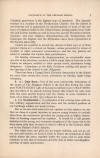 |
| page 6 |
|
7. (2) The
Special Advantages of Boarding-school Discipline for Boys if Quartered on
the School Grounds.—Every man who has achieved success in life is
conscious that his success is the result of his individual efforts. An
infant must have nursing, a cripple must have support; but however
tenderly he is loved and provided for, the sooner the boy is caused to
realize that he must depend on himself and '' work out his own salvation,"
and that " there are no supports behind him" by which he may avoid duty
and dodge accountability, the sooner does his preparation for true manhood
begin. For this reason the average boy cannot do his parents, or his
teacher, or himself justice AT HOME
The father is rarely so situated that he
can attend to his boy and his business. The mother often finds it very
difficult to control her son's associations after he gets to be thirteen
or fourteen. The horse, the dog, the gun, the fishing rod, oftentimes the
girl and the consequent social entertainments, all of which things are
more important in the boy's eyes than his school work, the unavoidable
interruptions, the inexhaustible supply of excuses for failures in duty,
the chances of avoiding penalties for negligence or wrong-doing through
the natural but too often indiscreet tenderness of parents, in many cases
the number and character of associates—each singly, and often all
combined, produce in too many instances, just in the formative period of
life, a habit of carelessness, of neglect of duty, of irresponsibilty,
which habit, once formed, is always damaging and often fatal.
All this is changed in a properly
conducted boarding-school, and especially in a boarding-school as
completely isolated as The Bingham School is, and as free from all
extraneous influences. Such a school is a physical, mental and moral
gymnasium in the best sense, where the many distractions of the home are
excluded by the changed conditions or by the regulations; where legitimate
amusements are confined to recreation hours, where the teacher has sole
charge of the pupil for twenty-four hours every day; where duty-doing for
duty's sake is constantly impressed on the mind; where the pupil is not
sustained in failures to do duty by supposed but really false friends on
the outside; where well-doing is rewarded; where wrong-doing is punished
without regard to persons, and where each pupil occupies, in the
estimation of teachers and comrades, the place, not into which he was
born, as in the family, hut the place which he makes for himself, as in
the world, for whose duties and responsibilities he is preparing. Besides
the discipline which teachers exercise when a boy is under their immediate
and constant |
 |
| page 7 |
|
supervision, the
attrition of a body of boys at a boarding-school on each other is of the
greatest value in reducing self-conceit, in wearing off rough edges, in
correcting peculiarities, in cultivating habits of courtesy, mutual
forbearance and deference to the rights and opinions of others; and this
gives to many a boy an ample equivalent for the money expended, even if he
should learn but little from his text-books. Furthermore, parents must be
separated at length from their children in the course of nature, and
children are usually separated from their parents in the course of
business, and so one of the principal purposes of education should be to
prepare a boy to leave his father's house and set up for himself; and we
think that the best preparation for this inevitable result is to send him,
as soon as he ceases to be a child, to a well-regulated Boarding-School of
high grade, to associate with and be assimilated to the sons of the best
people during the session, his home instincts being cultivated in
vacations. In confirmation of this, our experience is very clear in favor
of the boarding pupil as compared with the boy coming to us even from his
own home as a day pupil. We succeed moderately to well with about 90 per
cent, of our boarding pupils, and with only about 15 to 20 per cent, of
our day pupils, though they have the same instructors and are subjected to
exactly the same discipline as the boarders during the five or six hours
which they spend with us daily, insomuch that we have often advised the
parents of a day pupil to take him away from us and send him to a distant
boarding school, where he could be isolated and controlled; and whenever a
pupil from a distance has made it a condition of remaining with us that he
should board in Asheville and come as a day pupil, we have always declined
to receive him. 7. (3) The
Disadvantage of Quartering Boys in Private Families.
Our experience is very clear against
quartering boys in private families if the best results are expected and
desired. The first headmaster of The Bingham School had his pupils boarded
in private families from 1793 to about 1803; but from that time to the end
of his life in 1825 he declined to take a pupil who did not eat at his
table and sleep on his premises.
The second headmaster was unwilling to
burden his wife with "serving tables," as he had seen his mother burdened,
and from 1825 to 1845 he boarded his pupils in private families in a
country town. The results being very unsatisfactory, he abandoned the
town, and from 1845 to 1865 he boarded his pupils in private families in
the country, hoping for better things; and from 1857 to 1863 the 3rd |
 |
| page 8 |
|
and 4th
headmasters of the School were his partners. But the actual experience of
the 2d, 3rd and 4th headmasters condemning this method entirely, as that
of the first headmaster had done. And so the 3rd headmaster, from 1865 to
1873, declined to become responsible for pupils who lived off the school
grounds; and the 4th headmaster has pursued the same policy from 1873 to
the present. The concurrent
experience of the four headmasters of the School, from 1793 to 1903, has
been very clear that, with a few exceptions, association with private
families that will board school boys at the rates usually paid is harmful
rather than helpful to them, and that it is damaging to discipline, to
good order and to morals.
We found that almost always the landlord,
or landlady, or both, formed a party with the boarder against the teacher
in order to be popular with the boarder. Such collusion against the school
cannot be otherwise than damaging to the pupil; and yet this " running
with the hare and hunting with the hound" is unavoidable under that system
as long as human nature remains as it is.
A parent sometimes sends a boy away from
home to break up undesirable associations; and yet, he often subjects
himself to equally undersireable associations at a boarding-school
conducted on this plan.
We found, too, that the distractions for
boys which seem inseparable from co-educational schools are perhaps worse
in a school for boys only, where pupils are quartered in private families
adjacent to the school; for in the co-educational school the teachers have
some jurisdiction over the female pupils; while the teachers of a boys'
school have no control over the young ladies in the private families where
their pupils board, nor have they any control over the female visitors of
these young ladies.
We sum up the personal experience of the
four headmasters of this school, covering a period of more than a century,
with the statement that except in a few cases the disadvantages of this
system to boys at a boarding-school are definite and positive and that its
proprietors, who by this system are relieved of much expense for buildings
and equipment.
8. (i) Homesickness.—Before a boy becomes
accustomed to Boarding-School life, he often has a more or less serious
attack of HOMESICKNESS, a painful but not dangerous disease, which |
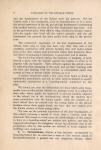 |
| illus. 1 |
bs_il_001 |
|
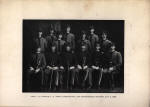
|
| illus 2 |
|
|
|
| page 9 |
|
weakens the
will, distorts the judgment, and produces acute unhappiness for a time. A
parent, therefore, should not be unduly disturbed by the accounts which
his son may give of the School and it management at first, and sometimes
under the same influence afterwards; and, before he takes any action based
on such accounts, we beg him to come in person and inspect the School in
every department and detail, or send an agent to do it.
8. (2) Writing Home.—Sometimes parents
complain that their sons do not write to them regularly. This duty is
constantly impressed on the Cadets by the Superintendent, who will see
that it is performed whenever he is notified of its having been neglected,
and he suggests that in such a case paper and a properly directed stamped
envelope be sent through him to the delinquent, as the lack of writing
materials and stamps is made an excuse from time to time for not writing
home.
9. Organization.—After a successful
non-corporate and merely civil existence of more than seventy years, the
School was incorporated by act of Assembly, December, 1864, as a "MILITARY
ACADEMY," and was empowered to confer such degrees and marks of
distinction as are usually conferred by literary institutions. The School
officers are commissioned by the State, the Superintendent as Colonel, and
the other teachers " with a rank not higher than that of Major."
From 1861 to 1882, the Superintendent of
the School was the Instructor in Tactics; but since 1882 the military
instruction has been committed to an officer detailed from the United
States Army, the School being among the hundred in the Union entitled by
numbers and organization to such detail.
The military organization, which was
introduced in 1861, was found so conducive to discipline, health and
scholarship, that it has been retained, the Military Department being
co-ordinate with the other Departments of the School; and though it is
kept up to a high standard of excellence, it is so adjusted that not only
if no military exercise permitted to interfere with the prosecution of
study, but through the very efficient aid of the military discipline,
better results are secured in every department than could be secured
without the military feature.
Being often asked what the special
advantages of a military organization in a boys' school are, the present
Superintendent, having been a partner in The Bingham School before the
military feature was introduced, and having administered it since 1873,
feels that he may speak with some assurance about the utility of a
Military |
 |
| page 10 |
|
Organization:
and before speaking of its great advantages he will show the mode of its
operation. The commanding officer
calls his battalion into line at an appointed time, with an appointed
signal, and every member must obey the signal promptly, in the prescribed
uniform and with the required equipment, which must be kept in the
required condition. The first order is "Attention!" which reduced the
whole battalion to silence and to the required and enforced " Position of
a Soldier." He gives any prescribed military order, say, " Right Shoulder,
Arms!" and it is obeyed by the whole battalion immediately,
simultaneously, and without the slightest question as to the commanding
officer's right to issue the order, or as to the duty of every man in the
battalion to obey it to the very best of his ability. And if any one fails
to obey it, he subjects the whole battalion to criticism, and the whole
battalion resents his "spoiling the drill."
Now if any one can suggest any other
method by which immediate, simultaneous, unquestioning obedience is
secured, which obedience is secured not so much by the authority issuing
the order as by the weight of the body receiving the order on itself, we
will abandon the military method and try the other. We do not claim that
every order of every teacher is obeyed promptly and cordially; but we do
claim that by prompt obedience to ANY order or set of orders the boy is
faced toward promptness, obedience and duty-doing, learns them
unconsciously and practices them automatically, so to speak, very much as
he learned his mother tongue unconsciously and as he uses it
automatically. In these days when God's command, " Children, obey your
parents" has been so largely super-children," the value of a system which
tends toward prompt and unquestioning obedience is obvious.
And so after a long personal and
hereditary experience in dealing with boys under a purely civil, and under
a combined civil and military organization, the Superintendent is sure
that a military organization gives very valuable aid in the work of
training boys to be men in the best sense, for the following reasons:
(1) We get our pupils TO LEARN MORE from
books with than we could without the Miltary Organization.
(2) We get our boys TO BEHAVE DECIDEDLY
BETTER with than we could without theMilitaryOrganization.
(3) A Military Organization cultivates
more than any other |
 |
| page 11 |
|
method known to
us the habit of immediate, implicit, and unquestioning OBEDIENCE TO
ORDERS. (4) A Military Organization
cultivates beyond any other method known to us habits of PROMPTNESS,
ORDER, NEAT-NESS, and SYSTEM in everything, and makes duty-doing more a
matter of course.
(5) A Military Organization furnishes
regular, systematic and affective PHYSICAL TRAINING without any undue
strain, and it enforces a standard of ERECT CARRIAGE and bearing not
otherwise obtainable.
(6) Frequent INSPECTIONS belong as much
to a Military Organization as wings to a bird or fins to a fish: but
because these inspections are a matter of established and traditional
routine, affecting all alike, every day alike, they are accepted as a mere
matter of course, exciting no more opposition, friction or complaint than
the calls to meals. If a soldier in an army or a boy in a Cadet School is
in his place, he does not object to being found there by the official
inspector. If
And so, beginning at 6 in the morning,
every Cadet in our Barracks is accounted for at " Reveille " and at "
Drill Call " 15 minutes later; at "School Call" at 8.15; at as many as
three class roll-calls and five scholastic Inspections during School Hours
between 9 and 3; and if he misses his lessons, at the 3 p. m. Study-Hall
Call. At night every Cadet is accounted for at " Retreat " at the 8.15
Inspection ; at "Tattoo" at 9.30; at the 10.15 "Silence Signal"
Inspection, and at the Inspection made by the teachers in turn every night
between 12 and 4. In this way every Cadet is accounted for about twelve
(12) times at intervals during School Hours throughout the day, and five
(5) times at intervals throughout the night. No traveler thinks that the
railroad company suspects any car wheel of being cracked because, at
certain stations, the soundness of every car-wheel is tested by blow of
the hammer. On the same principle our Cadets do not feel that we exercise
any undue espionage because we test their soundness by knowing that they
are in their places at stated times. But The Bingham School, when
conducted under a purely civil organization, could not exercise the
supervision attained now; nor can any father see what his son is about in
his own house twelve times at intervals every day and five times at night
without the boy's feeling that he is being treated with injustice and
suspicion.
(7) PENALTIES are necessary under any
system of law, divine or human; and a Military Organization furnishes a
series of penalties
|
 |
| page 12 |
|
|
 |
| page 13 |
|
|
 |
| page 14 |
|
|
 |
| page 15 |
|
|
 |
| page 16 |
|
|
 |
| page 17 |
|
|
 |
| page 18 |
|
|

|
| page 19 |
|
|
 |
| page 20 |
|
|
 |
| page 21 |
|
|
 |
| page 22 |
|
|
 |
| page 23 |
|
|
 |
| page 24 |
|
|
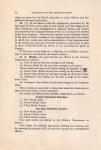 |
| page 25 |
|
re-scan |
 |
| page 26 |
|
|
 |
| page 27 |
|
re-scan |
 |
| page 28 |
|
|
 |
| page 29 |
|
re-scan |
 |
| page 30 |
|
|
 |
| page 31 |
|
re-scan |
 |
| page 32 |
|
|
 |
| page 33 |
|
re-scan |
 |
| page 34 |
|
|
 |
| page 35 |
|
re=scan |
 |
| page 36 |
|
|
 |
| page 37 |
|
re-scan |
 |
| page 38 |
|
re-scan |
 |
| page 39 |
|
re-scan |
 |
| page 40 |
|
|
 |
| page 41 |
|
|
 |
| page 42 |
|
|
 |
| page 43 |
|
|
 |
| page 44 |
|
|
 |
| page 45 |
|
|
 |
| page 46 |
|
|
 |
| page 47 |
|
|
 |
| page 48 |
|
|
 |
| page 49 |
|
|
 |
| page 50 |
|
|
 |
| page 51 |
|
|
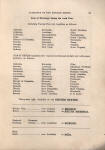 |
| page 52 |
|
|
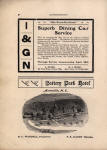 |
| page 53 |
|
|
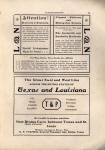 |
Cover
back |
|
|
|


